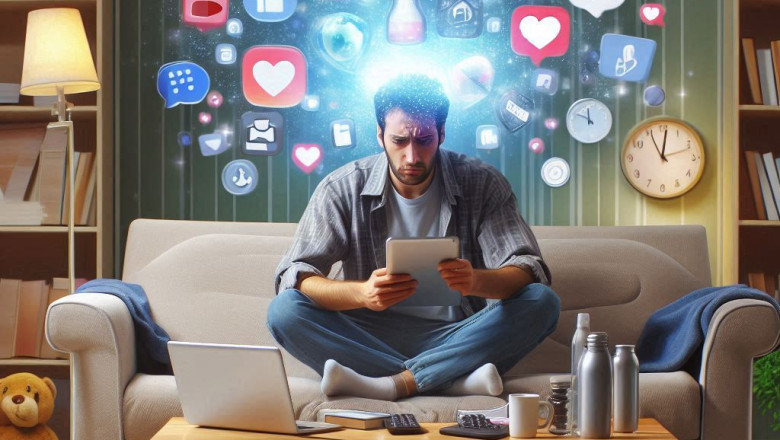views
Social media has become a big part of our everyday lives. We use it to stay in touch with friends, share photos, follow the news, and even learn new things. While it has many benefits, it's also important to understand how social media can affect our mental health.
The Positive Side of Social Media
Social media can be a great way to connect with others. It helps people stay in touch with family and friends, especially if they live far away. It can also be a place to share your thoughts, find support, or join communities with similar interests.
For many people, social media brings a sense of belonging. It can help reduce feelings of loneliness when used in a positive way. Some people also find it helpful for learning new things, discovering mental health resources, or following inspirational content that lifts their mood.
The Negative Effects on Mental Health
Even though social media has its good sides, spending too much time on it or using it in the wrong way can harm your mental health. One of the biggest problems is comparing yourself to others. People often post only the best parts of their lives online, which can make you feel like your own life isn’t good enough. This can lead to low self-esteem, sadness, and anxiety.
Another issue is cyberbullying. Negative comments, online gossip, or hurtful messages can be very damaging, especially for young people. Social media can also make it hard to focus, lead to poor sleep habits, and sometimes cause people to feel left out or lonely—especially if they see others posting about events they weren’t part of.
Signs That Social Media Might Be Affecting You
If you find yourself constantly checking your phone, feeling upset after scrolling, or comparing your life to others online, it might be time to take a break. Other signs include feeling anxious, losing interest in real-life activities, or not getting enough sleep because you’re always online.
How to Use Social Media in a Healthy Way
You don’t need to stop using social media completely, but setting healthy limits is important. Try to spend more time doing things offline—like going outside, reading, or spending time with friends in person. Follow pages or people who make you feel good about yourself, and don’t be afraid to unfollow or mute accounts that bring you down.
It also helps to take regular breaks from social media and focus on real-life experiences. Talking to someone—like a friend, parent, or counselor—can also help if you're feeling overwhelmed.
Conclusion
Social media can be both helpful and harmful, depending on how we use it. While it allows us to stay connected, learn, and share, it also has the power to affect our mood, thoughts, and self-esteem. Being aware of how social media makes you feel is the first step toward protecting your mental health. By using it mindfully and making time for real-life connections, we can enjoy the positives of social media without letting it negatively impact our well-being.














Comments
0 comment